Software engineering is not just about who can write the best code or how many algorithms you know - software engineer skills go way beyond this. Taking along engineering principles and programming languages in harmony to create software flow for the end users is how we would describe what a software engineer does.
Our article is value-packed with all the necessary and relevant information for all those interested to build a career as an ace software engineer. You will get to learn about the right skills that will make you excel as a professional engineer.
Alongside that, we will be discussing the tools and technologies as well as the salary situation for every level of expertise of a software engineer so you should know what to expect.
By the end of this 10-minute read, we promise a well-educated you who is prepared enough to know what it takes to rise to the software engineering challenges of any corporate giant.
Educational Requirements For Becoming A Software Engineer
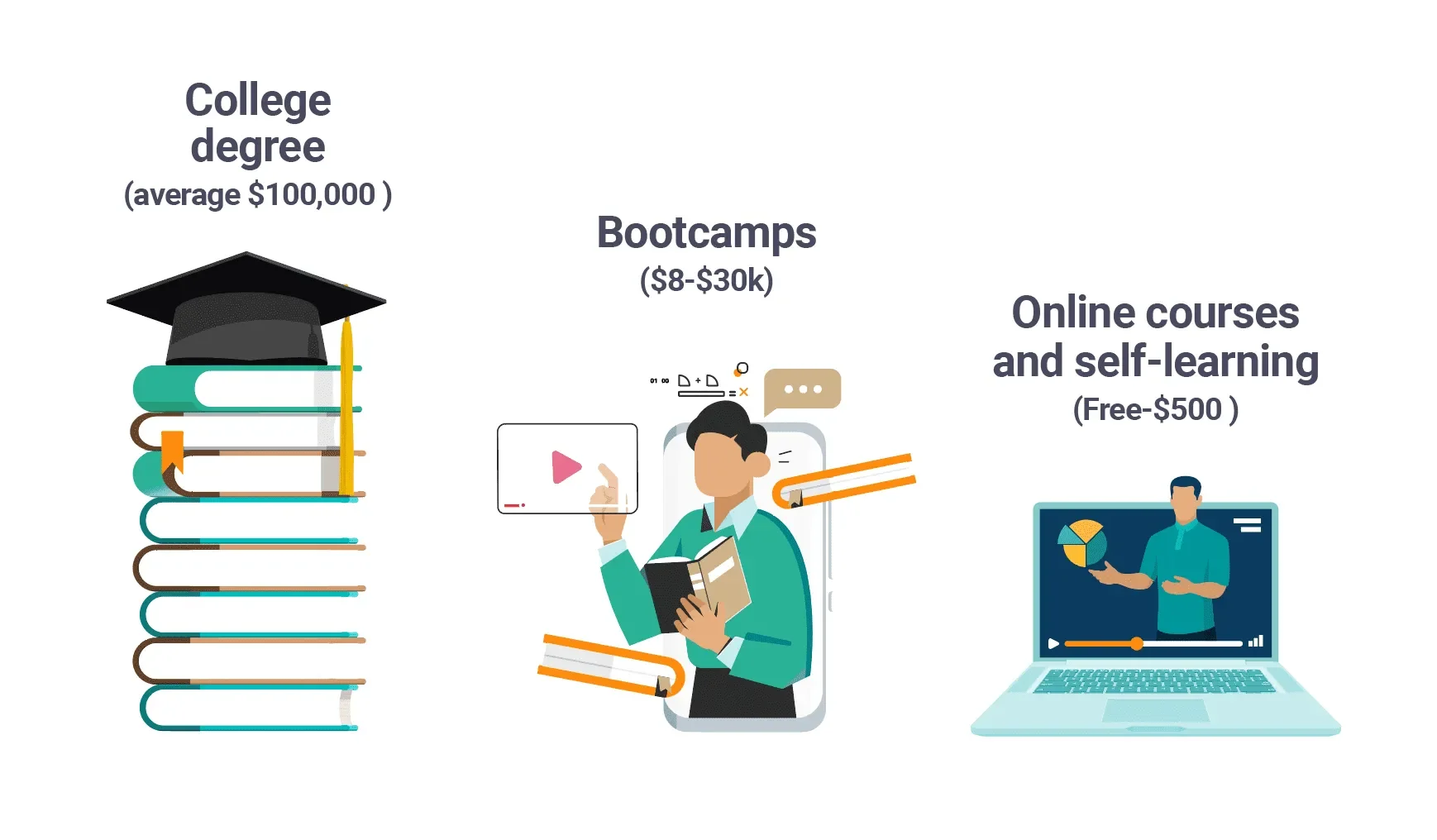
So you want to become a software engineer? Your selected career choice offers you a variety of educational paths that you can choose from. But the most commonly picked route to this field is through a degree in computer science, software engineering, or a relevant field. These degrees typically cover a range of topics, including:
- Algorithms
- Data Structures
- Computer hardware
- Programming languages
- Software Design and Architecture
Another way to become a software engineer is through certifications. These are often shorter and more focused than a full degree program and can provide you with specialized skills that are in demand in the industry. Popular certifications for software engineers include those from organizations like Microsoft, Oracle, and Cisco. In fact, you can find Certification Dumps online where you can find all the study material. And the best part is that many of these platforms offer free registration.
Bootcamps are also becoming an increasingly popular way to break into the field. The word boot camp seems intense. Well, these training programs are exactly what you are thinking them to be – hardcore and fierce. They sculpt your basic programming knowledge into something extraordinary that you need to become a top-tier software engineer in just a matter of months, rather than years.
Now let’s take a look at the skills that are necessary for becoming a software engineer.
7 Essential Skills For Becoming A Software Engineer
Here are 7 soft and technical skills that every software engineer must master.
1. Programming Languages
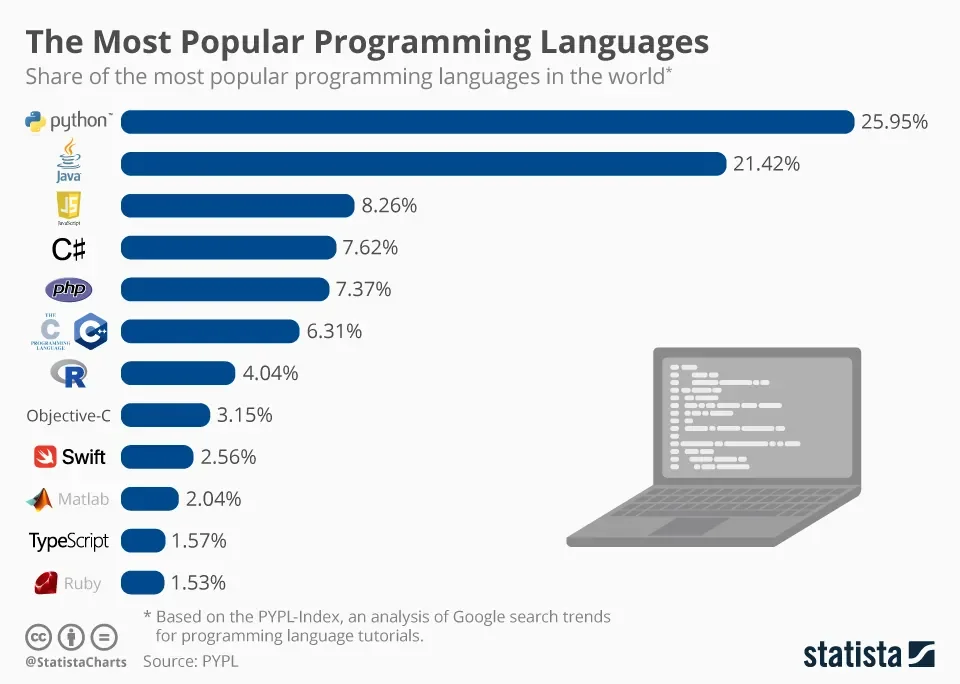
Knowing one or two software engineering programming languages may land you in a software engineering career. But if you want to excel and become a successful one, you will have to have a complete grasp of a variety of programming languages. These languages are the building blocks of the software solutions you'll be creating and mastering them is an essential part of the job.
All programming languages are important but Java reigns supremacy as one of the most crucial of all. Let's just say Java is the backbone of countless systems and application programs. The popularity of this programming language is mostly because of its portability and ease of use.
Another popular language is Python which is often used in data science and machine learning applications. If you have a knack for the web development niche, you can't wear the crown without mastering languages like HTML, CSS, and JavaScript.
A great understanding of the software development life cycle is crucial, of course, in addition to learning these above-mentioned languages. The software development life cycle includes:
- Designing
- Planning
- Creating
- Testing
- Deploying
- Maintaining
As we said, outstanding computer programming requires a comfort zone between the programmer and multiple programming languages. While having a grasp on a single one or maybe two languages may make you acceptable, having a broad range of skills will make you a much more valuable asset to your team. And this specialization will reflect in your work.
These are some of the programming languages that require your attention:
- Go
- C++
- PHP
- Ruby
- Swift
- Kotlin
- TypeScript
2. Database Management
Strong database management skills are highly valued in a software engineer. Designing effective database structures is necessary. Successful software engineers must understand the requirements of the application and choose the right type of database to meet those requirements.
Another important skill is the ability to write efficient and effective database queries. This involves understanding the syntax of database query languages like SQL and knowing how to optimize queries for performance.
An intelligently written yet complex query retrieves data more efficiently from multiple tables while minimizing the amount of data that needs to be transferred and processed. That is what a knowledgeable software engineer is expected to do.
Security is also a critical aspect of database management. A competent software engineer should have a solid understanding of security best practices, including:
- Implement access controls
- How to protect sensitive data
- Prevent SQL injection attacks
They should also be able to design databases with security in mind by using encryption to protect sensitive data at rest and in transit.
3. Algorithm Design
Are you an aspiring software engineer who dreams to make it big? Here is an insider; great algorithm design skills will land you with some of the biggest industry hotshots. These are sequential procedures for problem-solving. Software applications rely greatly on the strategic implementation of algorithms.
Algorithm design skills are essential for creating efficient and effective software solutions. A good software engineer should:
- Analyze a problem
- Break it down into smaller components
- Design an algorithm that can solve it
This involves understanding data structures, control structures, and various algorithms that can be used to solve different types of problems.
One important aspect of algorithm design is the ability to analyze the time and space complexity of algorithms. The amount of time it takes for an algorithm to run on a system is time complexity.
The amount of memory required to run the algorithm is what space complexity is about. A skilled software engineer will evaluate the trade-offs between time and space complexity and choose the most appropriate algorithm for a given problem.
Another important aspect of algorithm design is the ability to optimize algorithms for performance. Algo optimization helps in identifying the major or minor clogs in the algorithm and finding ways to minimize the number of operations required to solve the problem.
A software engineer is expected to be fluent in algorithm optimization. They should use techniques like dynamic programming, memoization, and divide-and-conquer to optimize algorithms.
4. Testing & Debugging
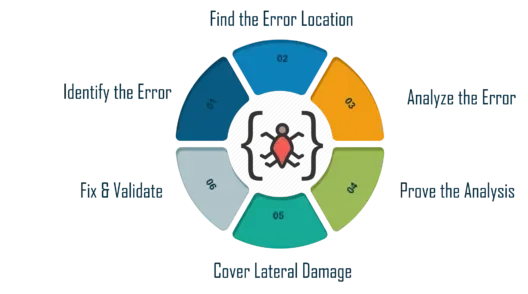
Testing and debugging are critical skills for software engineers. Software testing ensures that the software works as intended while debugging helps to identify and fix any issues or bugs that may arise.
Testing involves verifying that the software behaves correctly in a variety of scenarios. This includes testing for expected behavior as well as edge cases where unexpected inputs or situations may arise. There are many different types of tests that software engineers use, including
- Unit tests are used to verify that individual pieces of code are functioning correctly
- Integration tests help tell software engineers that different pieces of code work together as expected
- Acceptance tests are used to verify that the software meets the requirements of the user or customer
In addition to testing, debugging is also a critical skill for software engineers. Debugging is a systematic approach to discovering and validating the core issue of the malfunction and then implementing a fix accordingly.
Software engineers must use debugging tools and techniques to identify and fix issues. Common debugging techniques include logging, stepping through code, and using breakpoints to pause the program at key points.
5. Communication Skills
While software engineering technical skills are essential, communication skills are equally important. One of the most important communication skills for software engineers is decoding technical information clearly and at the same time being comprehensive. They should explain complex technical concepts in an easy way that is understandable to non-technical stakeholders.
Effective communication skills also help in project management. Communicating about project status, timelines, and requirements holds a great deal of importance. Software engineers must be able to effectively communicate these details with project managers and other stakeholders involved.
Good communication skills help in providing clear and concise updates on the progress of the project, as well as being able to pinpoint potential issues or risks timely.
6. Problem-Solving Skills
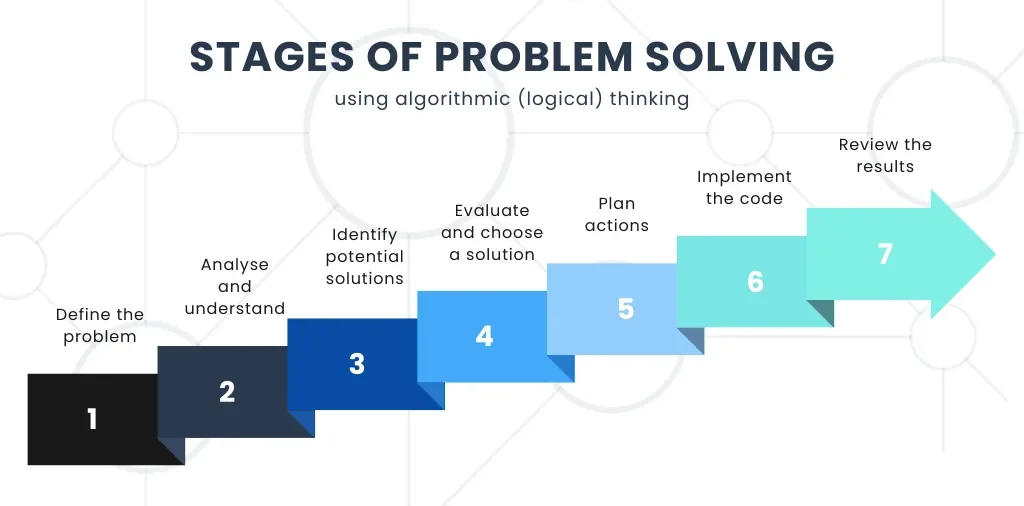
Problem-solving is the building block of software engineering. A software engineer needs to ace critical thinking skills. Why? Because he has to spend a hefty amount of time scrutinizing challenges while identifying their root cause and developing solutions to address them.
Now you understand the importance of problem-solving skills in the role of a software engineer. These skills simply cannot be overlooked for becoming a successful software engineer.
The best way to deal with obstructions is to break down complex problems into smaller and more manageable parts. A skilled software engineer who masters problem-solving is well aware of the importance of the divide-and-conquer rule.
They should think creatively and outside of the box. In every situation, a clever way to approach a problem is knowing there is more than one way to solve the problem. Software engineering is no different. Innovative solutions and critical thinking will boost a software engineer to design and develop more effective and efficient solutions.
Creative problem-solving skills also help analyze and evaluate potential solutions to determine which approach is most effective. They should identify the upsides and downsides of every solution offered and ultimately select the best option based on weighing what will be more profitable in the long run.
7. Teamwork
Software development is a team sport and requires the collaboration of many individuals with different skill sets to create software solutions. Working together effectively and efficiently is critical to the success of any project.
Software development projects are not one-man shows. They are complex and require input from multiple individuals. So the key to having a successful team onboard – effective communication, and efficient sharing of ideas is the way to go about it.
It aids in hitch-free work towards a common goal. Great collaboration helps in ensuring everyone is on the same wavelength so that all eyes are set on working on the same objectives.
Also, software development is an iterative process that involves multiple cycles of testing and refining. Teamwork skills are critical during these cycles as each team member should provide feedback, critique, and suggestions to improve the product's functionality, usability, and design.
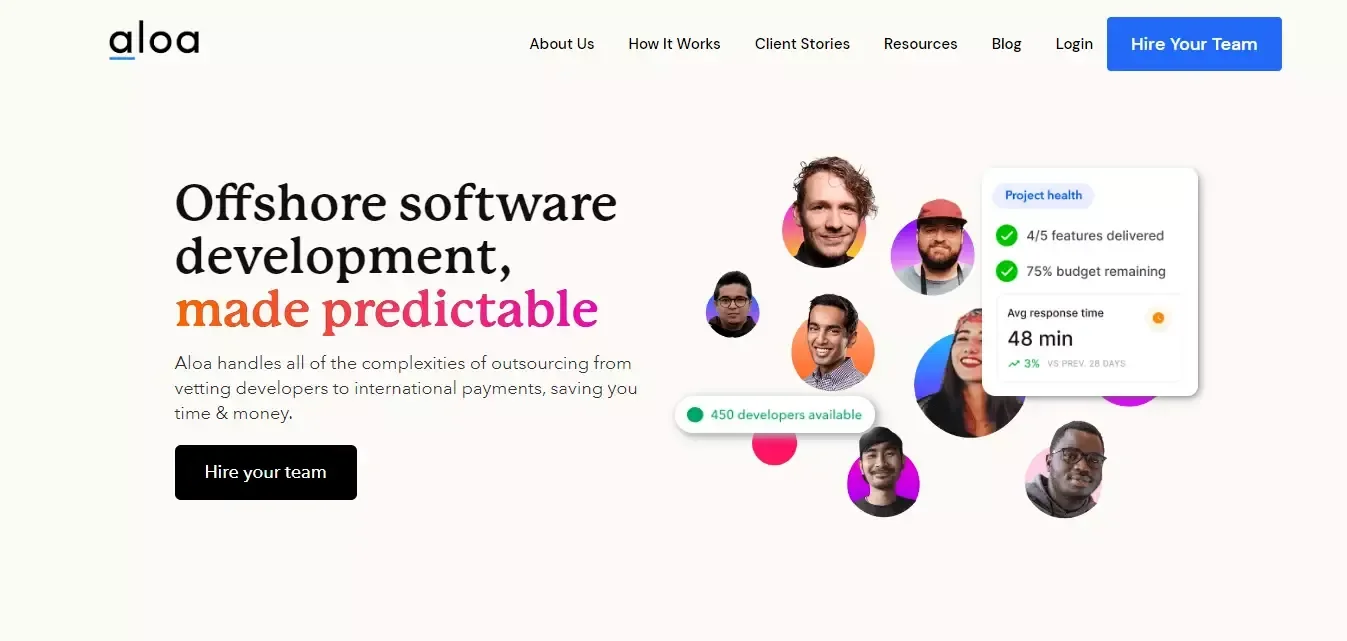
Aloa Software Engineers: On Time, On Budget, High Quality
Aloa is a global leader in helping businesses scale their software engineering teams. Whether you are looking to staff multiple engineers or build out a specific product, Aloa ensures that you are working with the best engineering talent from around the world.
Aloa has vetted 10,000+ software agencies around the globe to identify and hire the best software engineers. Our strict vetting process sets you up for success, giving you a clear path to interviewing top-tier candidates. The engineers in our network are well-versed in various programming languages like Vue.js, PHP, React Native and more.
Aloa will deliver Performance Reports to ensure you receive consistent updates on your project's progress so you stay informed and confident with every step. At Aloa, we make sure that you get your software built on time, on budget, and high quality.
4 Tools & Technologies That A Software Engineer Must Be Familiar With
Here are some most in-demand tools and technologies used in software engineering.
I. Integrated Development Environment (IDE)
Integrated Development Environments or IDEs are specialized software applications that help developers create, edit, and test software code more efficiently. A software engineer needs to be familiar with an IDE.
An IDE provides a software engineer with a single environment that integrates all the tools a developer needs to write, test, and debug code. These tools include code editors, debuggers, compilers, and other utilities. Having everything in one place can help streamline the development process and increase productivity.
Auto-completion, syntax highlighting, and code refactoring are major features of IDE. This can help software engineers develop better code whilst being more efficient.
Software engineers also benefit from IDE’s ability to debug code more easily. IDEs provide tools to help engineers step through their code line by line, set breakpoints, and monitor variables as the code is executed. This helps identify and fix bugs more quickly.
Many IDEs include built-in code analysis tools that identify potential issues with code, such as unused variables, duplicate code, and coding style violations. These tools aid software developers to adhere to coding standards and best practices. This can greatly impact the quality and maintainability of the codebase over time in a positive way.
II. Version Control Systems
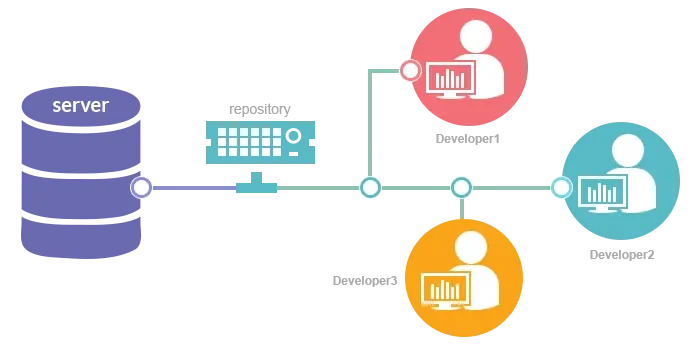
We wonder what software engineers did before VCS. Because version control systems are software tools that help developers manage changes to source code over time. In essence, VCS allows developers to keep track of the changes they make to code, collaborate with other developers, and revert to previous versions if necessary.
VCS allows developers to work on the same codebase simultaneously and merge changes when they're ready to be integrated into the main codebase; a great way to help prevent conflicts while making sure that everyone is working with the most up-to-date code.
Another reason why software engineers must be apt at using a VCS is because of their ability to revert to previous versions of code. Since newer versions or altered versions of the code may introduce the code to more bugs or errors, VCS is quite helpful as it allows the engineers to roll back to previous versions of code if necessary.
VCS also provides software engineers with a history of changes to code which can be useful for tracking down issues and understanding how code has evolved. VCS can also help improve the overall quality of code and ensure that it is well-organized, documented, and adheres to coding standards.
III. Cloud Computing
Cloud computing services allow software engineers to focus on building great applications without worrying about the underlying infrastructure.
Scaling applications swiftly is the biggest asset of a skilled software engineer. This leads us to why software engineers need to be proficient in cloud computing. Cloud computing helps to scale applications much more quickly and easily. Cloud providers offer a wide range of services that can be used to scale applications up or down as demand changes.
Cloud computing also helps software engineers to offload tasks that would normally be handled by on-premises infrastructure. Cloud providers offer services for data storage, content delivery, and analytics. This is an added help that can minimize the scope of infrastructure that needs to be handled by a software engineer.
IV. Artificial Intelligence & Machine Learning
Do you know what is taking over the world of software engineering? Yes, Artificial Intelligence (AI) and Machine Learning (ML). They are responsible for bringing more and more transformations by every minute. Every business is trying to get the power of AI and ML to work for its products or services.
By being an expert in AI and ML, software engineers can develop intelligent systems that can learn from data and improve over time. They can develop software that can adapt to new situations and provide better performance over time, making it more useful to the end-users.
Moreover, AI and ML can help software engineers to automate tasks that were previously time-consuming and tedious. This can also improve the overall quality of the software as the ML algorithm can find bugs and errors that would have been difficult for humans to find. Integrating a RAG pipeline into AI systems can further optimize the retrieval of relevant data, improving the overall performance and accuracy of machine learning models.
Now that we know key technologies that a software engineer should be aware of, let’s see how much you can earn by becoming one.
Software Engineer Salary In 2024

According to Indeed, the average salary of a software engineer in the US is $108,762. Here’s a break-up of software engineer salaries in the US with different experience levels
A. Entry-Level Software Engineer Salary In The US
If you are fresher straight out of college and looking to lay the foundations for your software engineer career, expect to make anywhere from $60,000 to $80,000 per year. Of course, this is not final and can vary depending on aspects such as location and company size. But in general, that's the ballpark range you will be looking at.
B. Mid-Level Software Engineer Salary In The US
Moving up the ladder to mid-level software engineers, you can expect to make anywhere from $110,000 to $120,000 per year. A more seasoned you, at this stage in your career, is likely to have specialization in a particular field linked to your software engineering portfolio.
C. Senior Software Engineer Salary In The US
Finally, for senior software engineers, the sky's the limit. In 2024, you can expect to make anywhere from $125,000 to $177,000 per year or more. Having abundant experience and knowledge in software engineering and leading massive projects by managing a team of engineers, your salary will reflect your level of expertise and responsibility.
Conclusion
With the world becoming more tech-driven by the day, the demand for software engineers is only going to increase. The rise in the employment of software engineering professionals is more than what is projected for any other profession.
With competitive salaries and the chance to work on cutting-edge projects that can change the world, it’s not a surprise that more people would opt for a software engineering career path. However, not anyone who can write code can be a software engineer. Software engineering is vast and to succeed, you must be proficient in certain software engineering skills and keep on improving.
We at Aloa have a rigorous screening process for our software engineers to ensure that only the best and most qualified candidates are available for hire. We ensure we gather a diverse pool of various skill sets, from full-stack development to machine learning and data science.
If you're looking for talented and experienced software engineers to help with your software development needs, then don't hesitate. Contact us today and start the process of hiring the best software engineers for your project.

